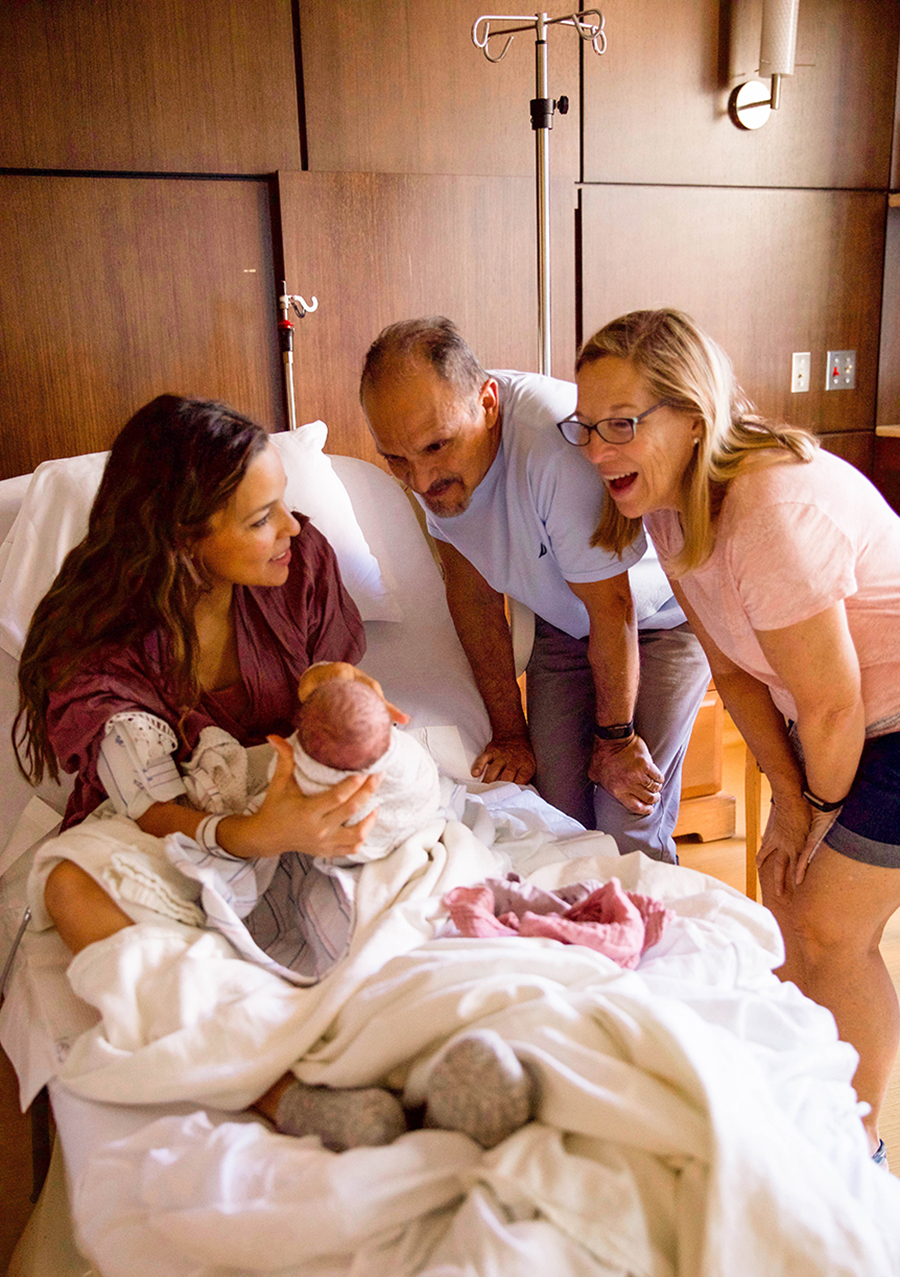
It’s been over 5 months since Chiara was born, and it took till about the 4 month mark for me to feel like the fog had cleared. You know….when everything stops feeling blurry, and you can actually connect your sentences again! It has been a time when the bliss of being with my baby has also been mixed with the anxiety of feeling like I am not enough for anyone. The joy of seeing her with her siblings was also mixed with feeling down and out of sorts. It is so natural to want to share the highs, and shuffle the lows underneath the rug. Perhaps though, if we gave more pause to the unspoken difficulties of new motherhood, the isolation we tend to feel would dissipate a little more. Having Chiara, like each of my children, has transformed my heart. I hope that in giving words to the often hard and beautiful sides of the coin, you feel the strength to do so too.
I asked my friend Crystal Karges, RDN, to write today’s post. She is a Maternal Health Specialist who has a wonderful way of offering new mothers a healthier perspective during postpartum season…
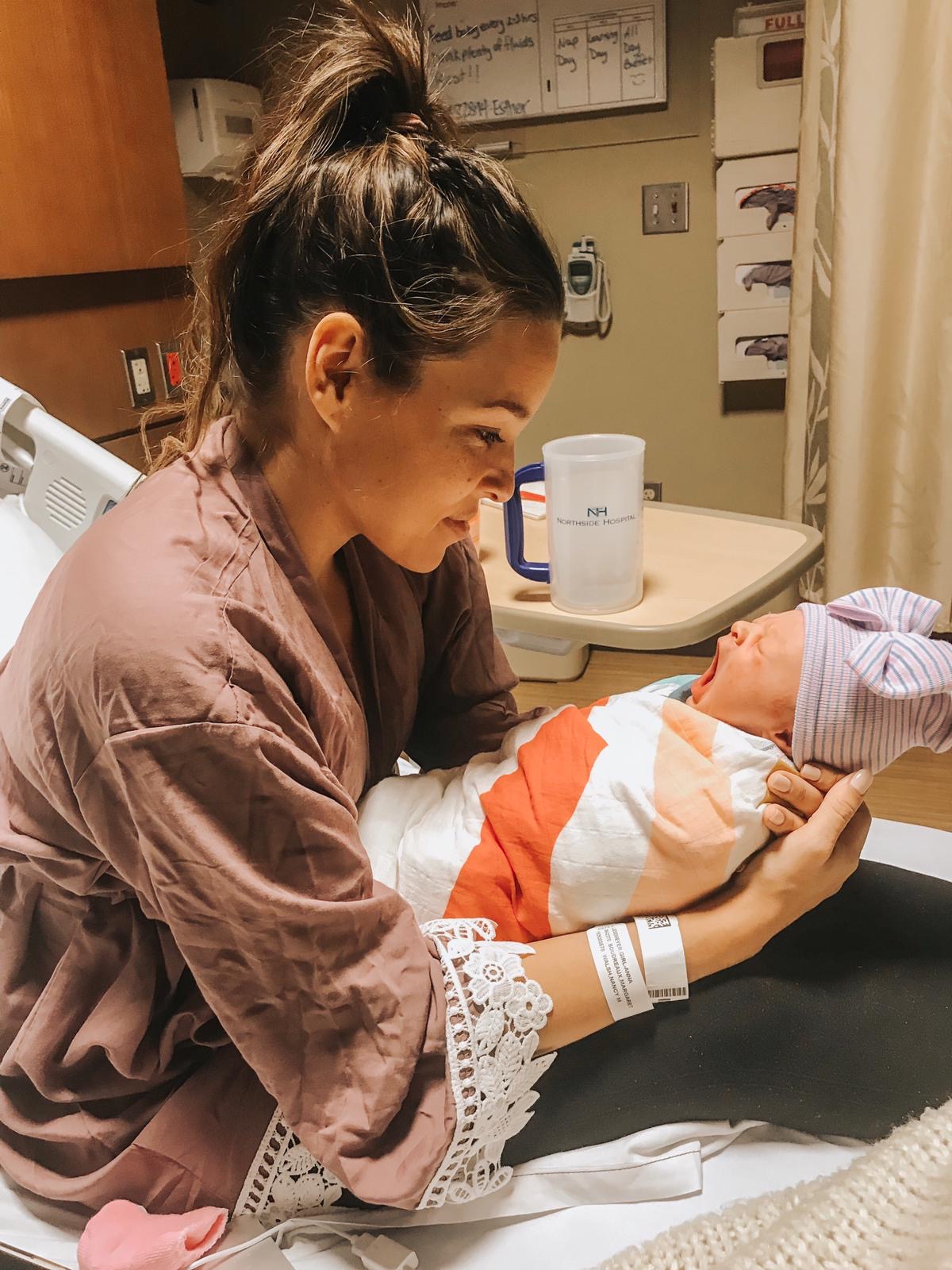
From Crystal Karges:
Culturally, we’ve grown accustomed to defining postpartum as the 6-8 weeks after delivery, but if you ask any new mom, this chapter of motherhood is a transformative journey that extends far beyond that. It is easy for new moms to assume that things should be back to “normal” within a relatively short time period. The reality is that postpartum recovery is not something that happens in weeks. For the majority of women, recovering from childbirth is something that happens over months… even years. new moms often keep pushing along, trying to hold themselves together when under the surface, they may be coming undone. Growing a baby and bringing life into the world impacts a woman on multiple levels, including her physical, mental, and emotional health. These are things that can’t really be measured or assessed at the typical 6 week postpartum check-up that new moms are accustomed to receiving.

On top of this, it’s important to see that many of the typical issues that may surface for new mothers might emerge further along in her postpartum journey, during a time where others typically expect her to be “back-to-normal”. For example, maternal mental health issues, like postpartum depression, can commonly occur up through 1 year after delivery and is considered the most common complication of pregnancy. However, the reality is that the majority of providers are no longer working with postpartum women or actively screening for postpartum depression beyond the six weeks of delivery.
While the attention and focus may have primarily shifted to your precious baby, it’s necessary to care for yourself too in order to experience motherhood from a place of wholeness. The good news is that there are some simple ways to attend to your own health and recovery, no matter where you might be on your postpartum journey.
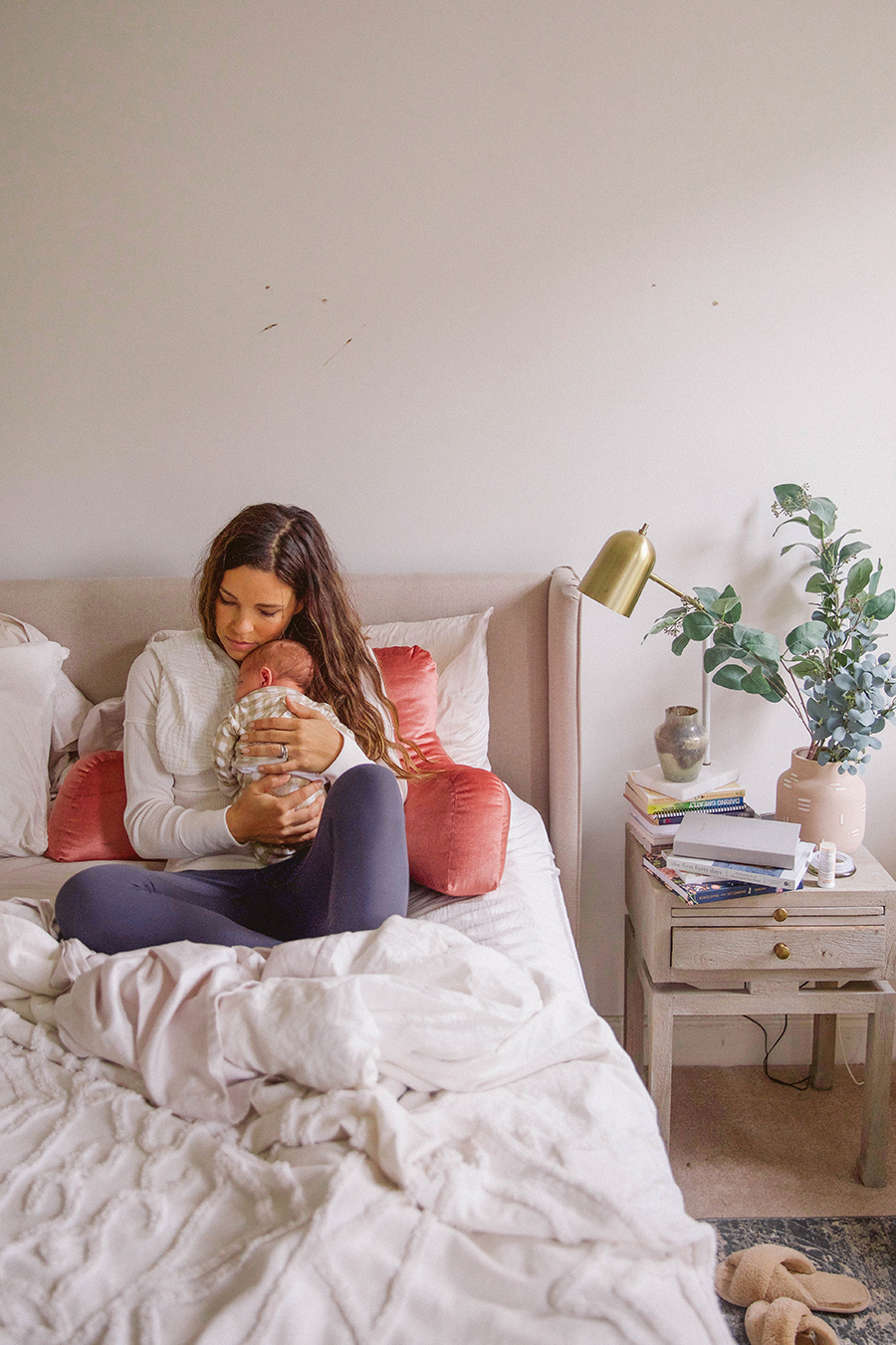
Keep these things in mind to help you cultivate a thriving postpartum experience:
1) Know the warning signs of maternal mental health issues and postpartum depletion: Because there is so much stigma surrounding mental health, it can be especially difficult for a new mom to reach out for help. The important thing to understand is that you don’t need to suffer in silence or struggle through this alone. There is no criteria for getting the help you need. If something feels off to you in any way – including physically, mentally, and emotionally – please connect with someone you trust and speak with your healthcare provider. Physical pain, emotional overwhelm, or difficulty coping with mental stressors are not a normal part of being a new mom. Remember that reaching out for help doesn’t mean you’re a bad mother or failing in motherhood – it simply means you’re human, and you deserve the help you need.
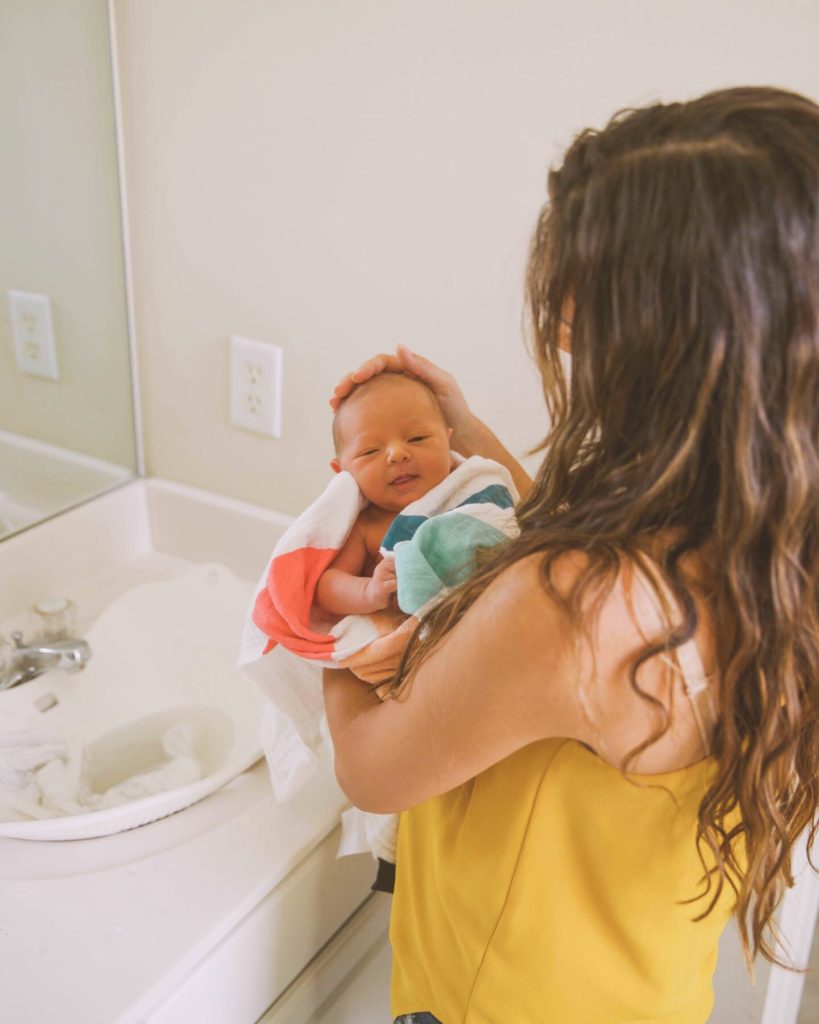
2) Be proactive with nutrition and rest: If you think about it, postpartum is one of the times in your life when your nutritional needs are at an all time high. Pregnancy, childbirth, and breastfeeding take a huge toll on your body, and if you’re not nourishing your body well, it can all catch up with you. Imagine it like a bank account: Growing your baby in your body, birthing your baby, and producing milk for your baby are like taking massive withdrawals from your bank account. You can quickly fall into a negative balance if you don’t prioritize adequate nutrition and rest to replenish your body. The truth is that it’s easier to prioritize nutrition during pregnancy, but how and what you eat during postpartum are as equally important. Nutrient deficiencies in postpartum can prolong healing from birth and increase your risk for maternal mental health conditions. Check out this post here for more specifics on how you can eat to support your postpartum recovery. Remember that eating and nourishing your body is the most valid form of self-care.
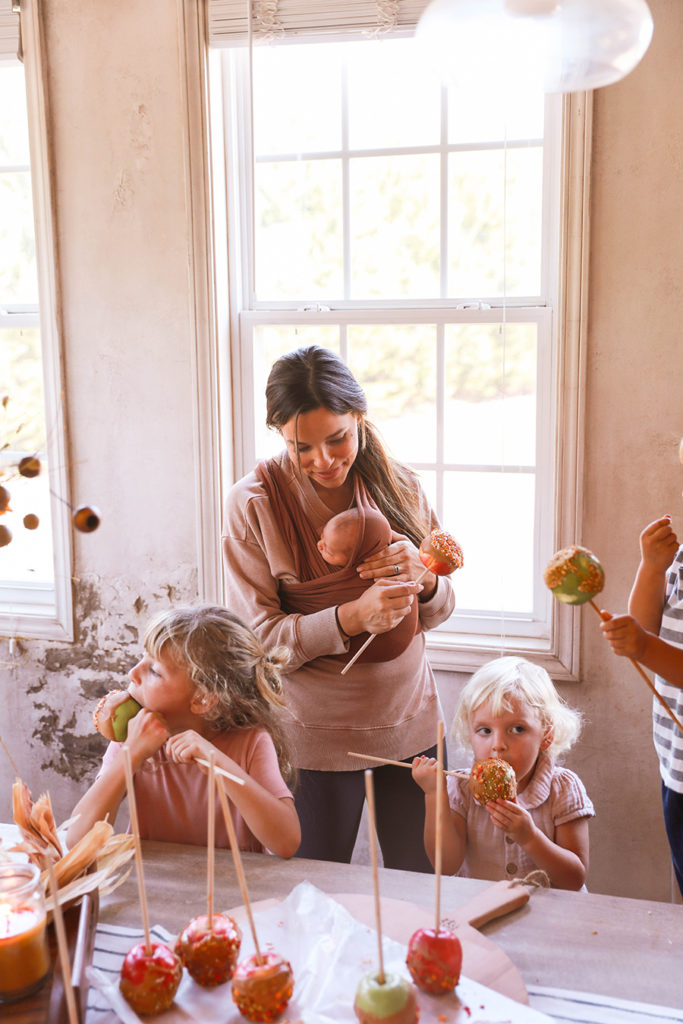
3) Stay connected to community and loved ones: Motherhood can be an isolating experience. I’ve once heard it described that motherhood is sometimes the hardest kind of loneliness because you’re with your babies/children, yet you feel apart from community and fulfilling relationships. This can be even more challenging in our digital media age, where we’re used to seeing the highlight reels of other people’s lives. You may feel connected to various people but more alone than ever before. Transitioning into motherhood often means experiencing a shift in relationships you once had. You might not see your close friends as regularly, now that you have a baby. You may even go through a difficult transition with your spouse/partner as you learn to navigate new parenthood together. With all that said, keep in mind that it takes a village – not just to raise a baby, but to care for a mother. You need other people in your life that you can trust to talk openly about what you’re feeling and experiencing. Cultivating community is an important aspect to your emotional and mental well-being. Motherhood was never meant to be done alone!
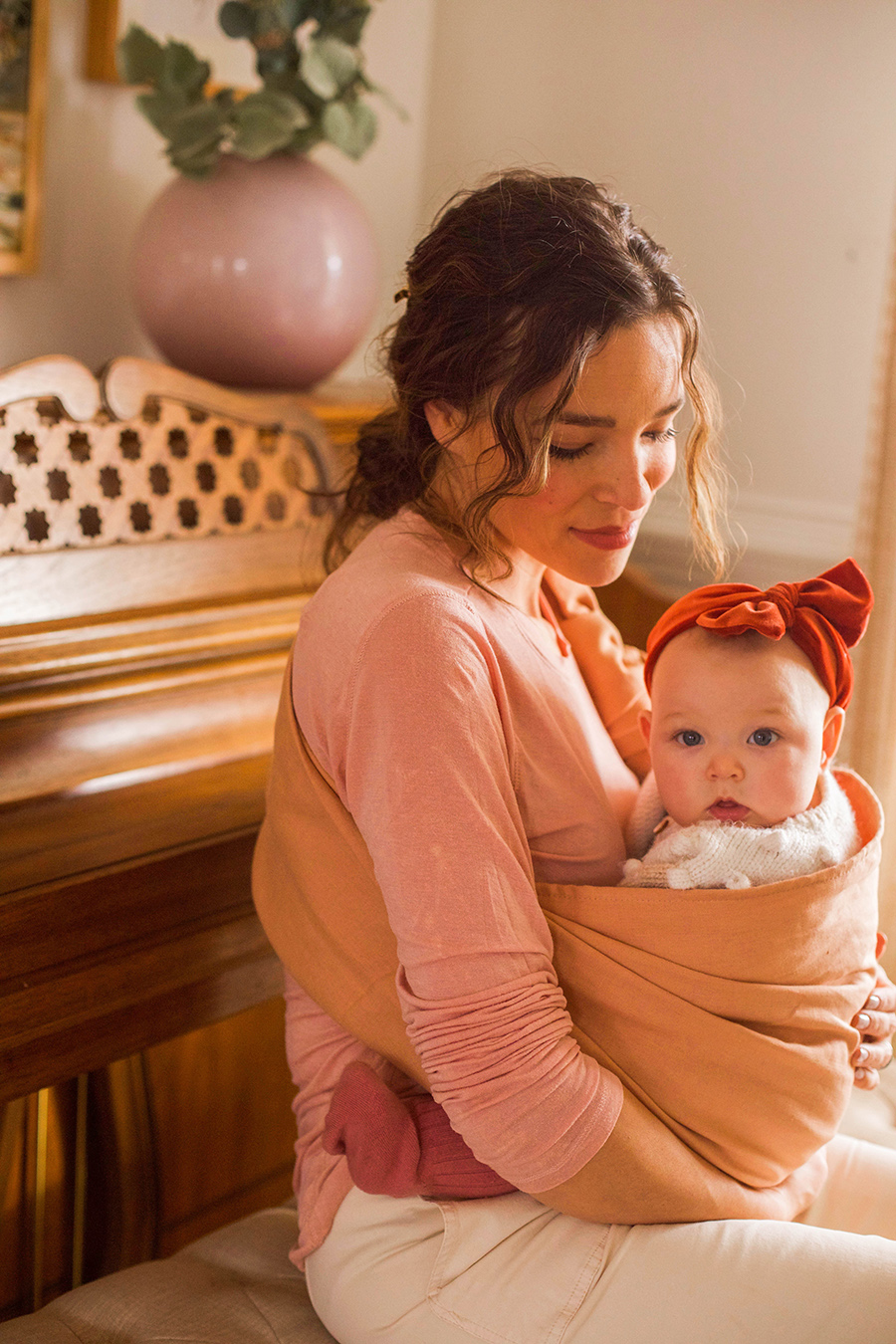
4) Self-care to nurture yourself and fill up your cup: Self-care has become a trendy concept, but I’m not referring to bath bombs and chocolate (though those things are nice, too). The self-care we’re used to hearing about usually involves something that can help you escape your circumstances temporarily. True self-care and nurturing sometimes involves doing things that are not necessarily enjoyable but important for helping you thrive. This might look like getting into therapy, stopping the social media scroll to read a book, or skipping the late night TV sesh for an earlier bedtime. Remember that postpartum often brings about the most intense stressors in a short time period, and having meaningful ways to care for yourself through the transformation changes of motherhood are more important than ever.
5) Focus on restoring function of your postpartum body: Pregnancy and childbirth take its toll, and healing physically often takes much longer than we really anticipate. Instead of focusing on weight loss or getting back to your pre-pregnancy size, think about what you can do to help restore function and strength to your body. Treat your body kindly and with the utmost respect. Don’t rush into rigorous exercise that might not benefit your healing postpartum body or deprive yourself of adequate food intake. Remember that your body grew a human life and birthed that miracle into the world. That is no small feat, mama!
Crystal Karges, MS, RDN, IBCLC, is a Maternal Health Specialist, Child Feeding Expert, and Food & Body Image Coach for Mothers. Crystal is passionate about helping mamas build a peaceful relationship with food & their bodies so they can confidently nourish themselves & their kids and bring joy back to eating. Crystal is committed to providing holistic, compassionate, and evidence-based nutrition care to mothers and families worldwide through her online blog and virtual nutrition coaching practice. Find more motherhood and meal time inspiration on her blog or on Instagram @crystalkarges





















